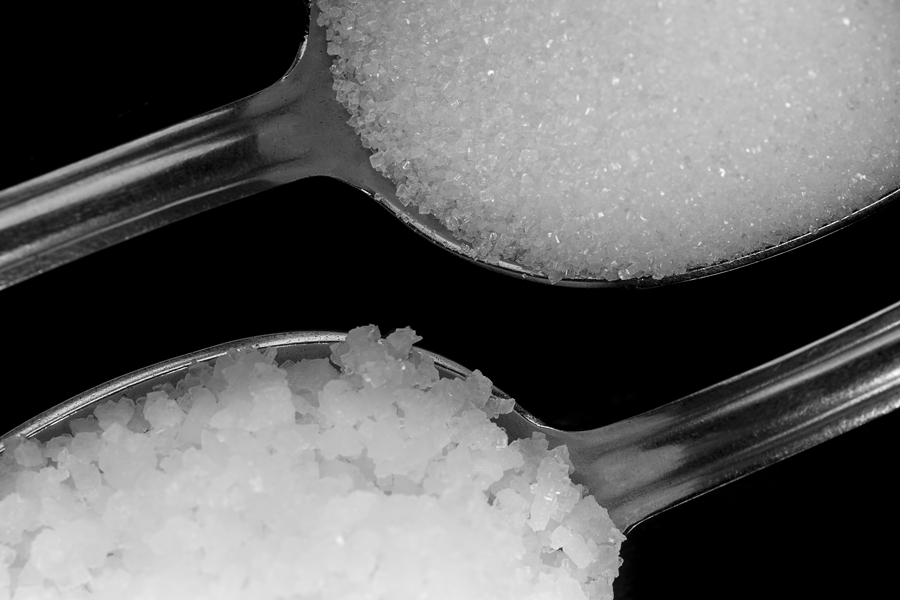- Make It Yourself Lavender Heart-Shaped Bath Bombs!
- 20 Things You Never Knew About “Down There”
- 12 Best Foods For Those Suffering From Arthritis Pain
- 12 Personal Hygiene Mistakes Almost Everyone Makes (Mom Never Told You About #4!)
- 15 Medicinal Plants And Herbs From The Cherokee People
- 12 Mind-Blowing Benefits Of Drinking Coconut Water During Pregnancy
- 12 Outstanding Winter Foods That Won’t Fatten You Up Like A Christmas Turkey
Eat Right To Live Longer

Photo credit: bigstock.com
Many people think that how long they live is determined by family history. “If grandma lived to be 90, there’s a good chance I will too,” they might think to themselves. To a certain extent this is true, of course. Genetics certainly do play a role here. But the choices people make over the course of their lives with regard to their health play an important role as well.
In addition to avoiding unhealthy behaviors like smoking and excessive alcohol consumption, what we eat can have a significant impact on how much time we spend on this earth. But with all the confusing, contradictory health and nutrition information out there, it’s easy to feel overwhelmed, throw up your hands and just decide to eat whatever, because this “eating clean” stuff is too hard to understand.
It’s all right. Everyone trying to improve their health has felt like this before. Everyone knows that they should eat right, but it’s so hard to know where to begin. In order to cut through all this confusion, we’ve compiled a list of the food types that lend themselves to a longer, healthier life, and the ones that do the opposite. Read up and you’ll have much greater clarity on how to clean up your diet.
Eating for Longevity: What’s Hot and What’s Not
As former real estate mogul and now President Donald Trump’s ghostwriter once wrote, “Sometimes the best investments are the ones you don’t make.” What this means is that oftentimes in life, what we choose not to do has just as much, or even more impact on our lives as the actions that we do take. This is especially true for our health in terms of our eating habits. Half the battle of eating healthy is knowing what not to eat.
First, let’s talk about meat
Before you get all upset, no one is telling you to go vegetarian. Human beings evolved to be omnivores, so it’s okay to eat meat. But there are certain health risks associated with certain kinds of meat, and this often has to do with how that meat is prepared.
Protein is necessary for health and for having strong muscles. However, taking in too much requires your body to get rid of nitrogen waste which accumulates in the body, which can cause dehydration and put an extra burden on your kidneys. There are certain nitrate compounds in processed meats like salami, pepperoni and ham which are considered carcinogenic, meaning that can increase the risk of developing certain kinds of cancer. This is also the case with hydrocarbon compounds which are found in charred, grilled meats.
You don’t need to eliminate animal proteins form your diet. Just be aware of how they’re prepared and try to eat those forms of meat in moderation.
Continue to Page 2

Photo credit: bigstock.com
Another major thing to be concerned about is sugars
The fact is that many modern people just plain eat too much sugar. The worst kind is high fructose corn syrup. It’s truly staggering how many foods this sweetener is in. It can be found in almost all processed foods, as well as candy, and it’s the primary sweetener for most carbonated sodas, even many fruit juices which might appear to be healthy.
High sugar intake has also been definitively linked to a higher risk of obesity, which in turn is associated with a high risk of cardiovascular disease, high blood pressure and shorter life.
Do your best to reduce the amount sugar you take in. Instead of soda, eat some fruit. It’s filled with natural sugar and will give you energy without rotting your teeth and making you fat.
Finally let’s talk about salt
Many people are aware that they eat too much sodium and that this can cause high blood pressure. But this is only half the picture. The mineral potassium plays an important role in helping regulate the amount of sodium in your body. In addition to reducing your salt intake, eat more potassium-rich foods like avocados, bananas and black beans, which can help your body get rid of excess salt.
So, what should you be eating?
Healthy fats found in foods like wild-caught fish, coconut oil, nuts and extra virgin olive oil are excellent for giving you energy, and no, they won’t make you fat. Lean proteins are good, and be sure to eat plenty of vegetables, especially leafy green ones like spinach, kale, collards and more. These are rich in vitamins and antioxidants, which help fight oxidative stress on your cells, one of the contributing factors to the aging process. Dairy is okay if your body can tolerate it, but try to get dairy products from grass-fed cows.
READ ALSO: 7 Superfoods For A Longer Life Infographic
This is just an introductory guide, and it should serve as a compass that will point you in the direction of specific healthy foods to buy. The journey of a thousand miles begins with a single step. Take that step today and choose to make good dietary choices, and someday you’ll be able to pass on those same lessons to your great-grandchildren.
References:
































